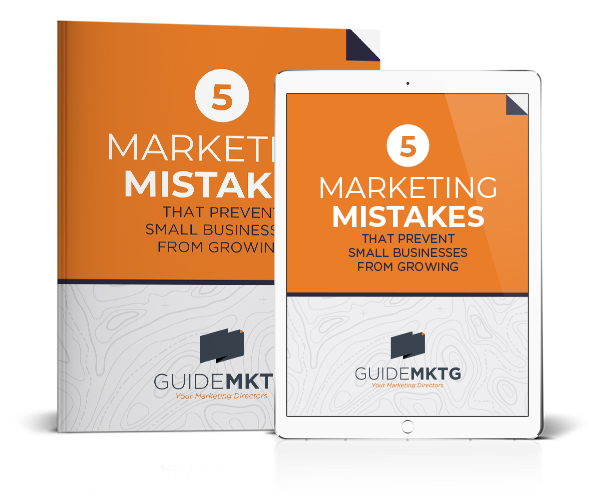Many business owners believe that marketing is the answer to all their business problems. You just make a catchy ad, get it out into the world, and watch the new customers roll in, right? But, what happens if those new clients roll into a messy sales process, grumpy staff, and glitchy systems? What if their purchase leaves them feeling misled or disappointed? You might make a few bucks but you definitely wouldn’t gain any loyal customers from those relationships.
The sad truth is that even the most brilliant marketing campaign can’t save a bad business. Let’s explore the relationship between business and marketing to help you understand why a solid business plan, and the practices to back it up, are like the peanut butter to a successful marketing campaign’s jelly.
The Difference Between Business and Marketing
Let’s start by looking at the difference between running a business and marketing a business.
According to Investopedia, marketing is a series of “activities a company undertakes to promote the buying or selling of a product or service.”
Marketing is an activity, an action you take to promote what you already have, not a magic solution. Your marketing plan is just one piece of a greater business puzzle.
Your marketing strategy is like a megaphone. It amplifies your message and helps potential customers discover what you have to offer, but marketing can’t create a great offering for you or a solid experience for your customers.
If your business is built on shaky ground, shouting about it won’t make it any more stable. You need to build a solid business foundation before you try to show it off.
Creating a business plan and implementing it consistently will give you the structure you need to shine when your successful marketing campaigns bring in new potential clients.
What is a business plan?
A business plan is like a roadmap that lays out your business goals, strategies to achieve them, any potential challenges that might come up, and solutions for those pesky speed bumps.
Your business plan should include:
–A description of your business. You could take this directly from your clear company messaging. This description outlines what you do and why you do it. It also provides a structure for everyone within your company to effectively explain your business model to others.
–A mission statement to let everyone on the team know where your company is headed. We aren’t talking about a dry, ambiguous mission statement that requires a translator to get the gist. Your mission statement should be clear, relatable and motivating enough to keep your team fired up all year long.
–An outline of your business structure and organization so that everyone understands their role, who they go to for help and how they help move the business forward.
This isn’t just an org chart. You also want to clearly lay out how everyone from your sales team to your customer service reps and all the other departments in between moves the company toward its overall goal. Everyone needs to know that they are an important member of the team.
–A summary of your products and services. You’ve already defined what problem you solve for customers. This is where you outline how you do it.
Explain what gives you a competitive advantage and how everything you do helps move customers away from their problem and closer to the life they want to live.
What do you do with a business plan?
A business plan is not a static document that you pat yourself on the back for creating and then sit on the shelf. It should be the guiding light of your business decisions and the foundation of everything you do.
All of the stakeholders in your company should have access to the business plan, from department heads to team leads. However, everyone working within your company should also know the pieces of the plan that pertain to them. Everyone should know their role in moving the company forward and the goals you are all working together to achieve.
You should then review your business plan regularly to capture any strategic changes, market shifts, or lessons learned. You also want to review your business plan regularly with the other departments to keep everyone working in the same direction toward the same goals.
What does marketing have to do with a business plan and practices?
Here’s the scary truth: if you have the right systems and structures in place, marketing can accelerate your growth. If you don’t, it can accelerate your downfall.
This doesn’t mean that you need to have a perfect business before you do any marketing. It means you should build your business strategically, using a plan as your guide from the beginning.
If you are already running a business that feels more like a three-ring circus than a company, focusing on an aggressive marketing strategy probably isn’t the best next step.
Instead of amping up your marketing, focus on cleaning up your business practices first. Once you’ve put out the fires and tamed the tigers, then you can crank the marketing back up, knowing your company can handle the heat.
How to Create a Solid Business and Marketing Partnership
As a fellow business owner, I am constantly reading books, listening to podcasts, and attending training to grow my knowledge and my business.
One of my favorite resources for equipping small business owners with everything they need to grow is Business Made Simple.
Business Made Simple is an online learning platform created by StoryBrand’s Donald Miller and his team. The platform outlines everything you need to build a solid business foundation that can withstand the pressure of growth.
If you want to make the most of your marketing buck, prioritize solid business practices and then add a stellar marketing strategy. The synergy of the two will help your business take off and reach new heights.





